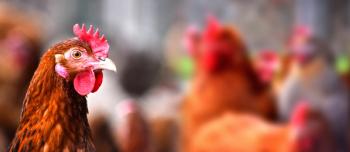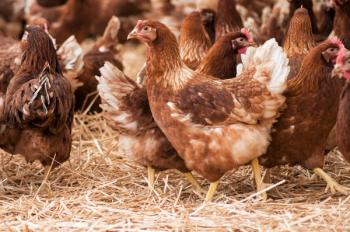
Case 6
The owners agree to treatment with hetastarch, and an ultrasonographic examination is scheduled for the next day. Hetastarch therapy is initiated at 20 ml/kg/day as a constant-rate infusion. The ultrasound reveals mild, generalized intestinal wall thickening with normal layering and a moderate amount of peritoneal fluid. Diffuse mucosal striations are noted, consistent with lacteal dilation. The liver, pancreas, and other organs appear normal. The mesenteric lymph nodes appear mildly enlarged but have normal architecture.
Based on these findings, you highly suspect that Roxy has a PLE, but you still haven't identified the etiology. After discussion with the owners, Roxy is referred for an upper GI endoscopy with and biopsy the following day.
These are the histologic examination results:
Microscopic description: The jejunum has moderate lymphocytic and plasmacytic infiltration and multifocal crypt dilation with rupture. Severe lymphangiectasia with lipogranulomatous enteritis is present.
Diagnosis-lymphangiectasia with moderate inflammatory bowel disease (IBD)
Lymphangiectasia causes leakage of protein-rich lymph into the intestine, which is why affected patients develop hypoproteinemia. Terrier breeds (like Yorkies) are predisposed to this disease, and, while primary lymphangiectasia is considered a congenital disorder, it is not uncommon for the clinical signs to appear later in life. Secondary lymphangiectasia may occur in patients with right heart failure or thoracic duct obstruction, but in the absence of other supportive signs, this is unlikely in Roxy's case. Because of the loss of lymph into the intestinal tract, lymphopenia may also be noted in these patients' CBC results.
QUESTION 6
What is the best treatment plan for Roxy at this time?
a)
b)
c)
d)
<<
Newsletter
From exam room tips to practice management insights, get trusted veterinary news delivered straight to your inbox—subscribe to dvm360.




